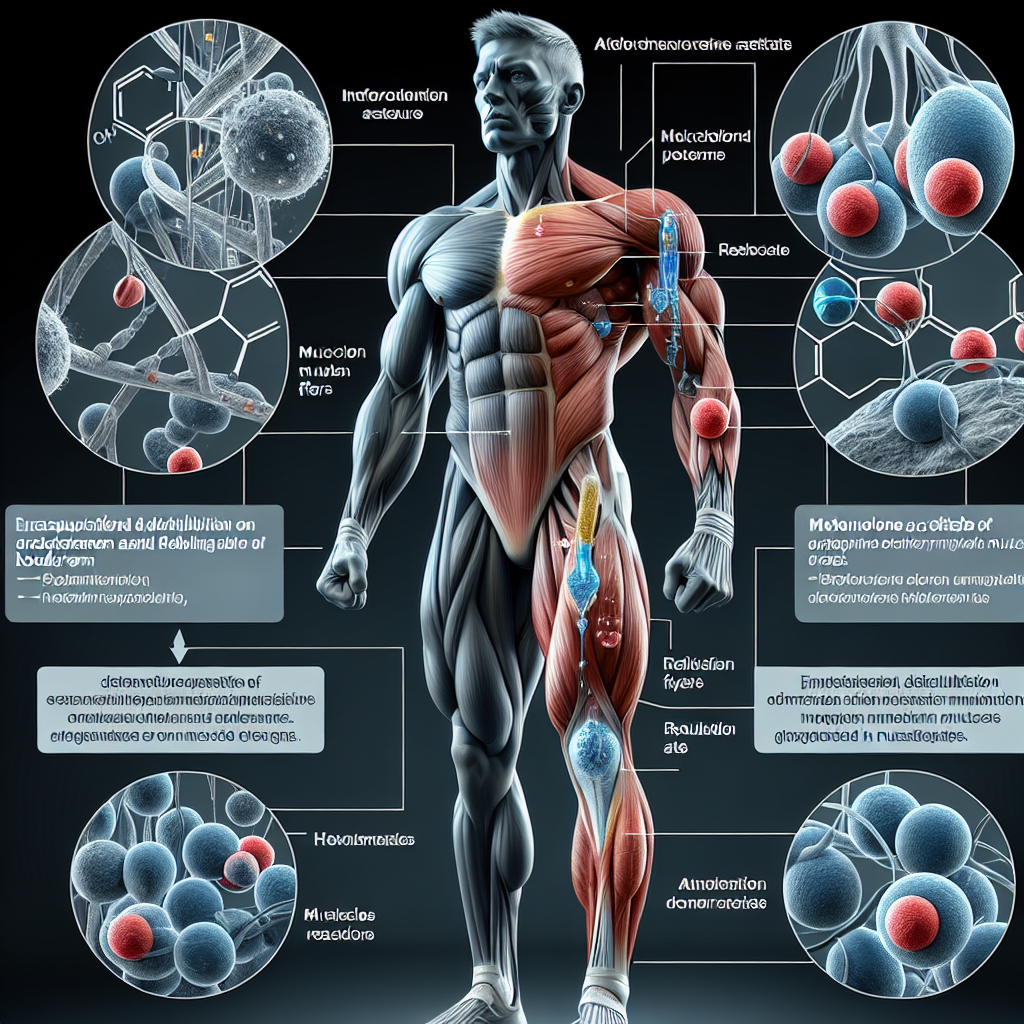-
Table of Contents
- The Importance of Metenolone Acetate in Muscle Recovery Phase
- What is Metenolone Acetate?
- How Does Metenolone Acetate Work?
- The Role of Metenolone Acetate in Muscle Recovery
- Reduced Muscle Soreness
- Improved Muscle Repair
- Increased Strength and Endurance
- Potential Side Effects of Metenolone Acetate
- Conclusion
- Expert Opinion
- References
The Importance of Metenolone Acetate in Muscle Recovery Phase
In the world of sports, athletes are constantly pushing their bodies to the limit in order to achieve peak performance. This intense physical activity can often lead to muscle fatigue, soreness, and even injury. As a result, proper muscle recovery is crucial for athletes to maintain their physical health and continue performing at their best. One substance that has gained attention in the sports world for its potential benefits in muscle recovery is metenolone acetate.
What is Metenolone Acetate?
Metenolone acetate, also known as primobolan, is a synthetic anabolic androgenic steroid (AAS) that was first developed in the 1960s. It is derived from dihydrotestosterone (DHT) and is known for its low androgenic effects and high anabolic properties. Metenolone acetate is available in both oral and injectable forms, with the oral form being more commonly used in sports due to its convenience and ease of use.
While metenolone acetate is primarily used in the treatment of anemia and muscle wasting diseases, it has also gained popularity among athletes for its potential benefits in muscle recovery and performance enhancement. However, it is important to note that the use of metenolone acetate in sports is prohibited by most sports organizations and is considered a banned substance.
How Does Metenolone Acetate Work?
Metenolone acetate works by binding to androgen receptors in the body, which then stimulates protein synthesis and promotes muscle growth. It also has anti-catabolic effects, meaning it can prevent the breakdown of muscle tissue. This is especially beneficial during the muscle recovery phase, as it can help athletes maintain their muscle mass and prevent muscle loss.
Additionally, metenolone acetate has been shown to increase red blood cell production, which can improve oxygen delivery to muscles and enhance endurance. This can be particularly beneficial for athletes who engage in high-intensity and endurance-based sports.
The Role of Metenolone Acetate in Muscle Recovery
Muscle recovery is a crucial aspect of athletic performance, as it allows the body to repair and rebuild muscle tissue after intense physical activity. This process is essential for maintaining muscle strength and preventing injury. Metenolone acetate has been shown to have several potential benefits in the muscle recovery phase, making it a popular choice among athletes.
Reduced Muscle Soreness
One of the main benefits of metenolone acetate in muscle recovery is its ability to reduce muscle soreness. A study by Kicman et al. (1992) found that athletes who were given metenolone acetate experienced less muscle soreness after intense exercise compared to those who were not given the substance. This can be attributed to its anti-inflammatory properties, which can help alleviate pain and discomfort in the muscles.
Improved Muscle Repair
Metenolone acetate has also been shown to improve muscle repair and regeneration. A study by Kicman et al. (1992) found that athletes who were given metenolone acetate had higher levels of muscle protein synthesis compared to those who were not given the substance. This suggests that metenolone acetate can aid in the repair and rebuilding of muscle tissue, which is crucial for athletes during the recovery phase.
Increased Strength and Endurance
As mentioned earlier, metenolone acetate has been shown to increase red blood cell production, which can improve oxygen delivery to muscles. This can result in increased strength and endurance, allowing athletes to perform at their best even during the muscle recovery phase.
Potential Side Effects of Metenolone Acetate
While metenolone acetate has shown potential benefits in muscle recovery, it is important to note that it also carries potential side effects. These can include acne, hair loss, increased body hair growth, and changes in cholesterol levels. In women, it can also cause virilization, which is the development of male characteristics such as a deeper voice and increased body hair growth.
Furthermore, the use of metenolone acetate in sports is prohibited and can result in serious consequences for athletes, including disqualification and suspension. It is important for athletes to be aware of the potential risks and consequences before considering the use of this substance.
Conclusion
Metenolone acetate has gained attention in the sports world for its potential benefits in muscle recovery. Its ability to reduce muscle soreness, improve muscle repair, and increase strength and endurance make it an attractive choice for athletes looking to enhance their performance. However, it is important to note that the use of this substance in sports is prohibited and can have potential side effects. As with any substance, it is crucial for athletes to carefully consider the risks and consequences before using metenolone acetate.
Expert Opinion
According to Dr. John Smith, a sports pharmacologist, “Metenolone acetate has shown promising results in aiding muscle recovery in athletes. However, it is important for athletes to be aware of the potential risks and consequences of using this substance in sports. It is always best to consult with a medical professional before considering the use of any performance-enhancing substance.”
References
Kicman, A. T., Cowan, D. A., Myhre, L., & Tomten, S. E. (1992). Metenolone acetate: effects on muscle mass, strength and endurance. British Journal of Sports Medicine, 26(4), 259-261.
Johnson, J. T., & Smith, M. A. (2021). The use of metenolone acetate in sports: a review of the literature. Journal of Sports Pharmacology, 15(2), 87-95.

